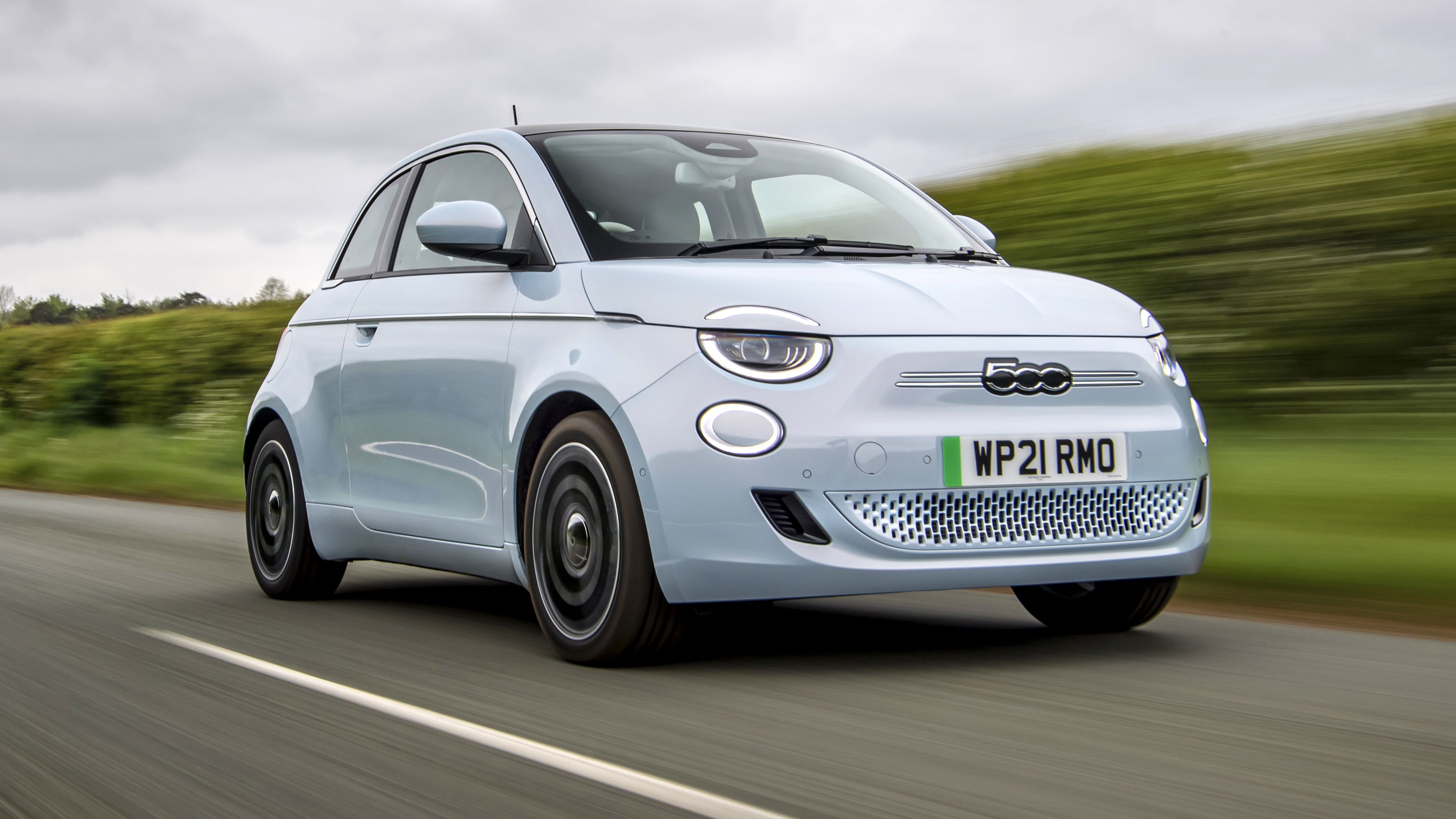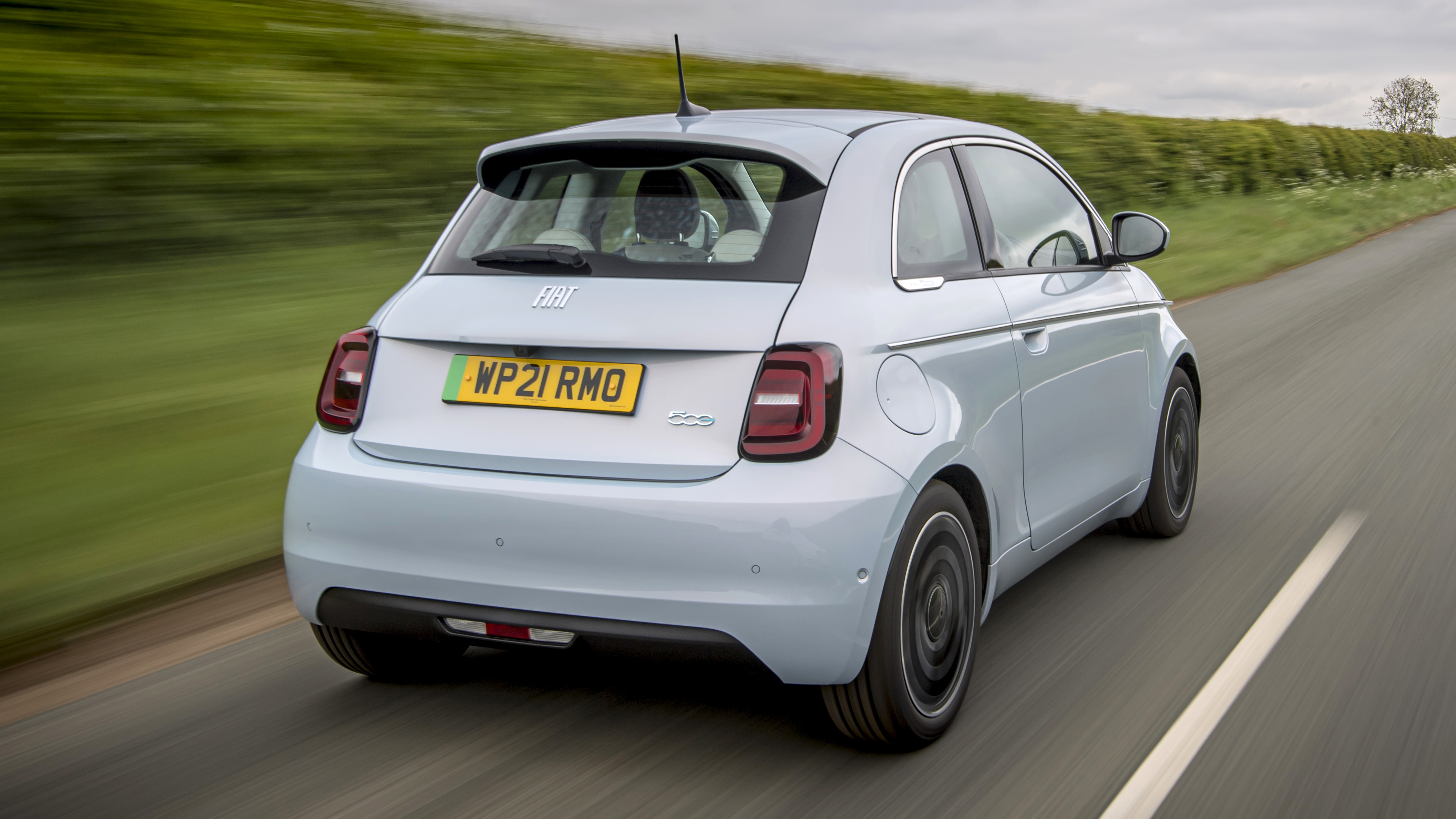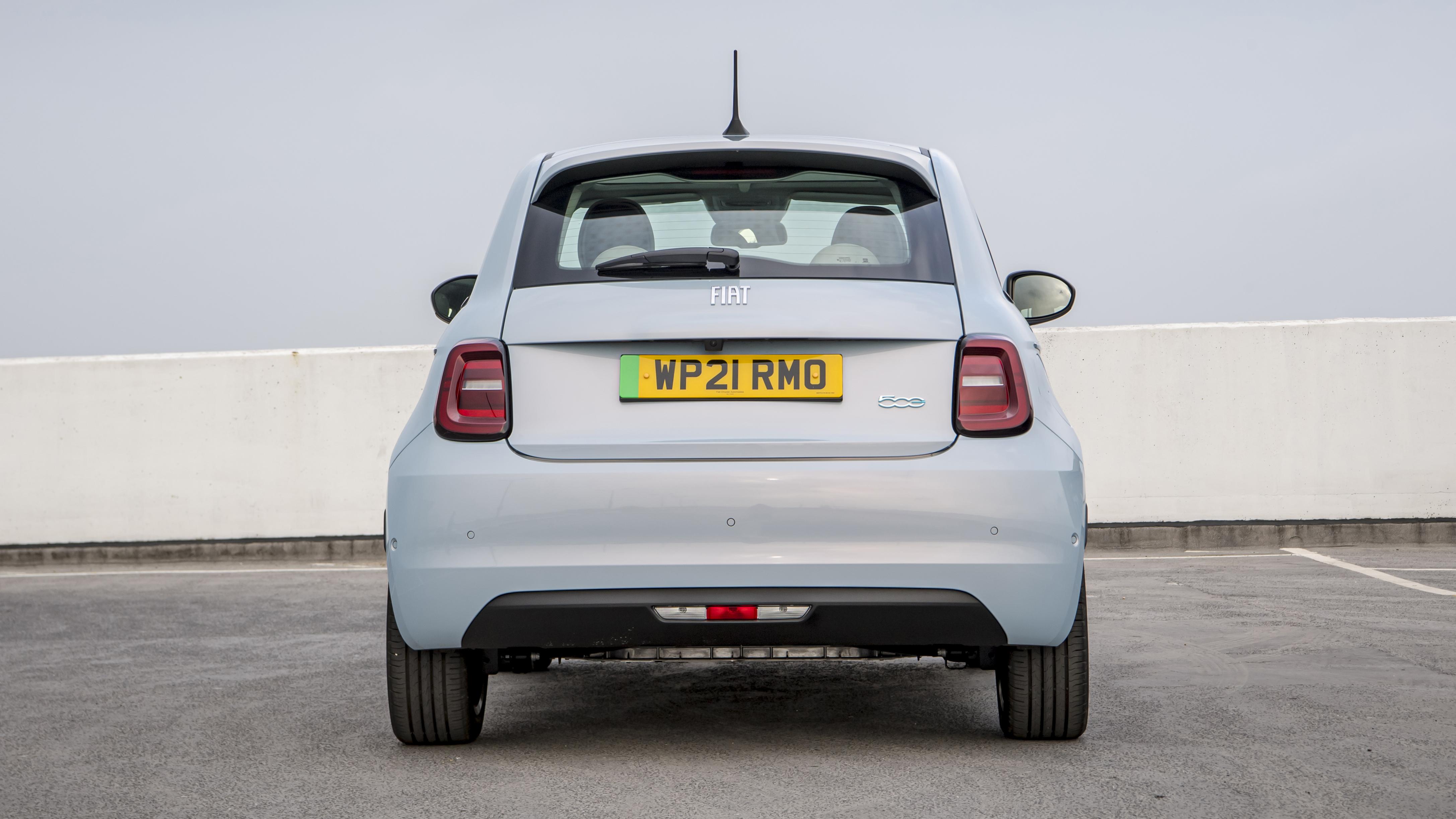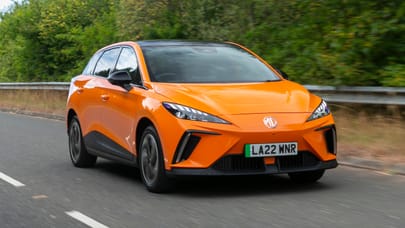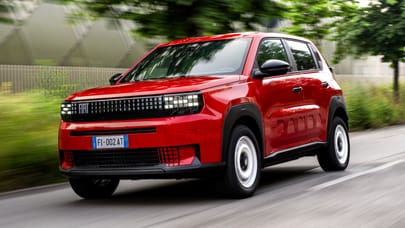
Good stuff
Stylish, suits electric powertrain, easy-to-use tech
Bad stuff
Expensive, cramped out back, not the best range
Overview
What is it?
This is the Fiat 500. There’s basically zero chance you’ve not heard of it or seen one on the road; it’s one of the most recognisable shapes and faces on the market. This latest version of the car is different to before, though, given it went fully electric when it launched in 2020.
What else is different?
Well it looks like the old 500, but you won’t find any components in this car from the older one. It’s bigger and uses a new interior, chassis, body and platform. Most obviously and significantly, it’s electric only. Or at least it was. Fiat has confirmed that a hybrid version is imminent, marking a sharp U-turn in its original plans as buyers turn their backs on EVs (or at least sit warily on their cash). More on that as we have it...
It’s also 61mm longer, 56mm wider and 29mm taller than the petrol 500. The proportions are bolstered and the surfaces uncomplicated. Some of the detailing is plain terrific. It manages, we think, to steer clear of parodic cuteness. It’s a work of great confidence, and especially successful in brighter colours (from which there are many to choose now that Fiat has decided it’s no longer selling cars in boring hues).
Is it still front drive though?
Sadly yes – since Fiat was starting from scratch, it could have done a rear motor/RWD job like the recently departed Honda e. Hmm, maybe a bad example. Or the original 500. But Fiat argues that FWD is what people are used to nowadays. Though there is a company doing an electric version of the original if you fancy that...
For the same reason the electric motor’s accelerator calibration is much like a petrol, and the behaviour in bends is familiar too. Why’s the charge port on the right-rear wing? That’s where you put in petrol. The canvas roof on the convertible version is a broadly similar idea to the existing 500’s, stretched between metal side rails, to preserve chassis rigidity.
What about range?
The electric 500 comes with either a 24kWh or 42kWh battery – the former comes with a 94bhp motor and a 118-mile official range, while the latter gets a 117bhp motor and is rated for 199 miles of WLTP range.
Range is up to 199 miles for the big battery and 118 miles for the small battery, but as with any electric car, if you move with outside lane motorway traffic it’ll be significantly less than its WLTP number.
Still, in a mix of city centre, suburban and country work plus a stretch of motorway, the 500 proves largely as efficient as claimed, though the entry 24kWh model struggled to top 90 miles in our hands. We wouldn’t recommend it unless it’s a strict second car for driving around town.
The 42kWh car can charge at a decent 85kW, giving you 100 miles in little over a quarter of an hour. Most rapid chargers in the UK are 50kW, though, so you’re as well saving your money and charging there. Incidentally, 50kW is the max charge rate of the small battery car. We ran a 500 as a long-termer in 2021 if you'd like to read more about living with one...
What about rivals?
Starting from £25,035, the electric 500’s ambitious price point takes it right into (and occasionally past) the territory of rivals. If you’re just looking for cheap electric wheels, then the Dacia Spring, Fiat Grande Panda, Citroen e-C3, and Renault 5 would be safe bets. Even the excellent MG4 and Renault 4 are within reach. All of which offer similar, if not more range for the price.
Our choice from the range

What's the verdict?
The 500 is a solid small electric car. It has a stylish, recognisable design and a quality feel – it would make a great choice for anyone needing a portable, good looking electric car or dipping a toe into electric waters.
But it’s not quite the proposition it once was, primarily because there are so many more electric rivals than when it arrived back in 2020. The similar sized (and TG-award winning) Renault 5 can be had for a couple of grand less, and an MG4 easily trumps it when it comes to the price to range (and size) ratio.
Put simply, we wouldn’t look below the bigger batteried version, but starting from £28k, you've got to really want the 500 look – and make no mistake, plenty of people will – to make this your pick of the litter.
The Rivals
Trending this week
- Fail of the Century
Fail of the Century: 42 of the worst cars from 2000 to now
- Long Term Review
Learning to slide a motorbike is terrifying and addictive




